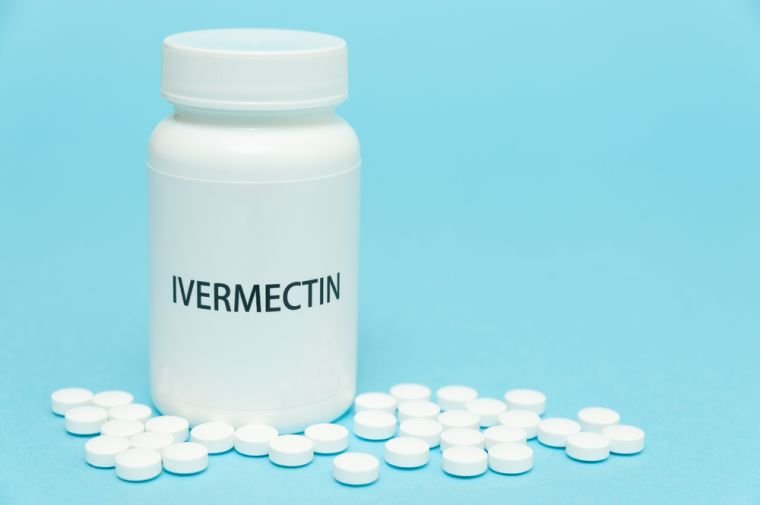Ivermectin has been a topic of global discussion, when it was suggest by some as a potential treatment for the virus. Originally developed in the 1970s and approved for use in humans in 1987, Iverheal 6mg is an antiparasitic medication. It has since gained a reputation as a safe and effective drug when used for its intended purposes, such as treating infections caused by roundworms, threadworms, and other parasites. However, the safety of Iverheal 3mg tablets has come under scrutiny due to off-label uses and misinformation, particularly during the pandemic. This article aims to clarify the safety profile of ivermectin tablets based on evidence from scientific studies and clinical use.
What is Ivermectin?
Ivermectin is a medication derive from the bacterium Streptomyces avermitilis, and it belongs to the class of drugs known as macrocyclic lactones. The drug works by binding to invertebrate muscle and nerve cells, causing paralysis and death in parasites, thus helping to rid the body of parasitic infections. It has been primarily use to treat conditions such as:
- Onchocerciasis (river blindness)
- Strongyloidiasis (threadworm infections)
- Scabies
- Lice
In veterinary medicine, ivermectin is also widely use to control parasites in livestock and pets.
Safety Profile of Ivermectin Tablets
FDA Approval and Recommended Uses
Ivermectin has been approved by the U.S. Food and Drug Administration (FDA) for human use under specific conditions. It is available as oral tablets, topical creams, and as an injectable solution for animals. For humans, it is generally prescribed in tablet form to treat parasitic infections, with doses typically ranging from 3 mg to 12 mg, depending on the patient’s condition and body weight.
Under its approved use, ivermectin has shown a strong safety profile. It is generally well-tolerated, and adverse effects are usually mild and rare. The most common side effects include:
- Mild dizziness
- Nausea
- Diarrhea
- Fatigue
- Headache
In some cases, more serious side effects can occur, such as allergic reactions, skin rashes, or swelling, particularly in people undergoing treatment for parasitic infections like river blindness, where an immune response may cause more intense side effects.
The Issue of Off-Label Use
While ivermectin is consider safe for treating parasitic infections, concerns about its safety, when some individuals began using it as a treatment for the virus, often in much higher doses than recommended for parasitic infections. This off-label use led to misuse, misinformation, and a spike in adverse events reported to poison control centers.
The FDA has explicitly warned against the use of ivermectin for the prevention or treatment of CO, citing a lack of conclusive evidence and the risk of severe side effects when taken in inappropriate doses. The misuse of ivermectin, especially formulations meant for animals (which can be much more concentrate), has been associate with side effects such as:
- Severe nausea and vomiting
- Diarrhea
- Hypotension (low blood pressure)
- Neurological symptoms such as confusion, hallucinations, and seizures
- Liver injury
This highlights the importance of taking ivermectin only under the guidance of a healthcare professional and for its approved indications.
Who Should Avoid Ivermectin?
While ivermectin is generally safe when used as prescribed, there are specific groups of people who should avoid the medication or use it with caution:
- Pregnant and Breastfeeding Women: The safety of ivermectin in pregnant women has not been well-establish. Animal studies have shown some risks, so it’s often avoid unless the benefits outweigh the risks. It’s also excret in breast milk, and breastfeeding mothers are advise to consult with a healthcare provider before use.
- Children: Ivermectin is not recommend for children who weigh less than 15 kg (33 lbs) due to limited data on safety in this population.
- People with Liver or Kidney Disease: Ivermectin is metabolize in the liver, and those with liver disease may not process the drug efficiently, leading to a higher risk of side effects. Similarly, individuals with kidney problems should consult their doctor before using ivermectin.
- People on Certain Medications: Ivermectin can interact with other medications, including blood thinners, anti-seizure drugs, and medications used to treat certain types of infections. Such interactions could increase the risk of side effects or reduce the effectiveness of ivermectin.
The Global Impact of Ivermectin
Despite the controversies surrounding its use, ivermectin has been a transformative medication for millions of people, particularly in low- and middle-income countries. It is a key part of the World Health Organization’s (WHO) efforts to eliminate river blindness and other neglected tropical diseases.
The Mectizan Donation Program, initiated by the manufacturer Merck, has provided over a billion treatments of ivermectin free of charge to people in developing countries, significantly reducing the burden of parasitic diseases. This initiative showcases the positive impact of ivermectin when used correctly and safely.
Final Thoughts on Ivermectin’s Safety
Ivermectin is a well-established and highly effective treatment for parasitic infections, with a good safety profile when used as directed. However, its use for off-label purposes, such as treating, remains unsupported by robust clinical evidence and can lead to dangerous side effects, especially when taken in high doses or animal formulations.
The key to safely using Iverheal lies in following medical guidance. If you have a parasitic infection Ivermectin that requires treatment with Iverheal, rest assured that it is generally safe and effective when prescribed by a healthcare provider. However, self-medicating or using the drug for unapproved purposes can pose serious health risks. Always consult a doctor or pharmacist before starting any new medication, and be cautious of claims that are not supported by scientific research.
In conclusion, Iverheal tablets are safe for their intended uses, but like any medication, they must be used responsibly. Misuse, especially in the context of treating viral infections, can lead to severe and avoidable health complications.




